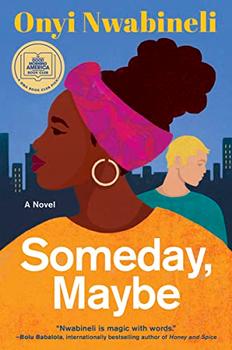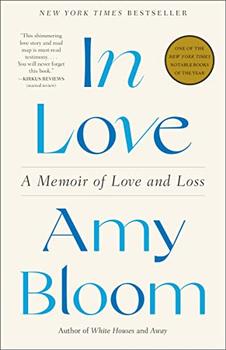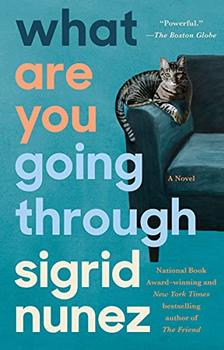Summary | Excerpt | Reading Guide | Reviews | Beyond the book | Read-Alikes | Genres & Themes | Author Bio

A Novel
by Onyi NwabineliSuicide entered Eve Ezenwa-Morrow's life on the last day of the year, when her darling husband Quentin did the unthinkable and killed himself. In the aftermath, Eve contemplates her role as a wife. Has she been terrible? Or just indifferent? Immediately, her family rushes to comfort, console and nurture her, and she is both grateful for and repelled by their presence. Her life now a train wreck, she weaponizes her grief to keep others at a distance, but over time, she learns that you don't move through a traumatic event by burying yourself under the covers.
In Someday, Maybe, debut fiction author Onyi Nwabineli courageously takes on the experience of self-harm that may occur after the suicide of a loved one. Attempts have been made to explain the ins and outs of grief through psychological research, perhaps most notably in Elisabeth Kübler-Ross's grief stages. However, suffering cannot be easily parameterized. Anger for some. Denial for others. Acceptance, maybe. But not always. In the prologue, Nwabineli offers to readers a map of the story from Eve's point of view: "1. He was the great love of my life despite his penchant for going incommunicado. 2. He was, as far as I and everyone else could tell, perfectly happy. Which is significant because… 3. On New Year's Eve, he killed himself. And here is one thing you should know about me: I found him. Bonus fact: No. I am not okay."
Universally, that is the legacy of the bereaved. Not being okay. Eve can barely limp out of bed to use the toilet. She subsists on Zopiclone (for sleep) so she won't have to remember she was the one who found Quentin bleeding out, his blood upon her brown body a bittersweet agony. How do you move on from that? Through the fog of your tears. By clinging to memories of the past.
Eve was 19 when she met Quentin: "He was gorgeous. Not just gorgeous, beautiful. Almost painfully so. I was rendered speechless by his eyes—the color of an unsullied ocean, the kind you see in travel brochures advertising islands you have never heard of." Quentin was also struck by a visual aesthetic; he noticed Eve on campus and was captivated by her elegant cheekbones and how he imagined they would photograph. Her Nigerian ancestry in this scenario hardly seems to have warranted a thought, almost as if it was arbitrary. In my view, the story's minor flaw is this papering over of interracial love, as if it can share the exact qualities of same-race love. But I understand the author's choice to frame her story narrowly, centering on a wife in despair and in shock.
We get an immediate sense of how Eve and Quentin built a life together for 13 years. Eve worked at a high-brow magazine as an online curator and Quentin was a photographer who escaped a succulently privileged life to be her partner. Their marriage is portrayed as poetic, serene, chaotic and memorable, heightening the freight Eve carries after Quentin's suicide.
The son of the famous couple Malcolm Morrow and Aspen Bowes-Morrow, Quentin once said, "Eve, I promise you I have no emotional attachment to them." His attitude was typical of some children of wealth who skewer where they come from, then plop themselves in spaces their snobbish parents are revolted by.
At the heart of Nwabineli's story are two things: coping and Eve's family. Eve's soul is crushed by Quentin's suicide and she manages the onslaught of guilty emotions by taking to her bed. Her family isn't alienated by her weepiness and lethargy. They are a perfect illustration of high-achieving British-Nigerians (her parents are both doctors) who through the sheer grit of their will expect to heal her. Her brother Nate is sweetly caring, her older sister Gloria is bossy and refuses to tiptoe around her grief. But for a period of time, there is only one way for Eve to deal with her horrific and spectacular fall. Be alone. Lick her wounds. Go to sleep.
Because the suicide of a loved one is like a cut that deepens and is slow to heal, authors of grief-fare need a counterbalance to their depiction of incurable suffering. Salvation from this suffering must be set aside for something more complex. In Eve's case, this comes in the form of conflict with Quentin's mother Aspen, who unleashes a campaign of loathing upon her daughter-in-law. Eve responds by ignoring Aspen's calls, letting them go to voicemail, which enrages Aspen even more. She sics her lawyer on Eve, making a variety of litigation threats that exponentially intensify once she discovers Eve is pregnant with Quentin's baby.
The surprise pregnancy and her hovering family are too much; Eve needs an escape. Quentin was scheduled to attend an artist retreat on the Isle of Man and Eve flees there, unaware of the consequences. As Quentin's work is being discussed during an afternoon session, she is overcome by anger-grief:
"It's one thing to hear the sound of my husband's name in the mouths of strangers—like nails on the battered chalkboard of my heart. But it is something else to have your marriage dissected before your very eyes as you sit incognito in the back of a retreat where you have come to try and understand why he is gone."
If you have ever experienced an epic loss, the pain in this story may be retraumatizing. Eve schleps sorrow around, dragging it everywhere. As I empathized with her, a Virginia Woolf quote came to mind, the one about how nothing has happened until it's been recorded. Someday, Maybe is a sterling recording of grief and loss, of course, but also of how the white-affluent other the brown. How the wealthy, however they exercise power in other ways, lack power over their children's deaths. This imbalance gives the story its beautiful heft and offers a much-needed perspective on what suicide is apart from the myth. And what suicide frankly is not. It is an unrecoverable loss. It is a hellish unfixable hurt. It is not punishment for the damned.
One of the many things I appreciated about how Nwabineli contextualizes sorrow is the way she develops grief, oxygenating it alongside Eve. The author reflects on how the one left behind by suicide is in stasis while her grief balloons around her, continuing to grow larger and wider. Even as Eve tackles loss with all the emotions you'd expect from a grieving widow, she is unable to manage the simplest of tasks, and her recovery is painstakingly slow.
Midway through the story, I had the sense that I knew Eve, and I credit this, too, to the stylistic strategy Nwabineli uses. The anatomy of grief is given human form in the character, who is preoccupied by two unanswerable questions: Why did Quentin kill himself? Why did he shut himself off from her? But it is how Eve's struggle meets her resilience that I found the most resonant. Very early in the story, Eve notes, "With death your suffering is permanent." The ending shows quite the opposite: Touching the wound sporadically. Embracing her new self. Her different life. Her bittersweet memories.
![]() This review was originally published in The BookBrowse Review in January 2023, and has been updated for the
February 2024 edition.
Click here to go to this issue.
This review was originally published in The BookBrowse Review in January 2023, and has been updated for the
February 2024 edition.
Click here to go to this issue.

If you liked Someday, Maybe, try these:

by Amy Bloom
Published 2023
Winner of the 2022 BookBrowse Nonfiction Award
This powerful memoir by New York Times bestselling author Amy Bloom is an illuminating story of two people whose love and shared life experiences led them to find a courageous way to part - and of a woman's struggle to go forward in the face of loss.

by Sigrid Nunez
Published 2021
The New York Times-bestselling, National Book Award-winning author of The Friend brings her singular voice to a story about the meaning of life and death, and the value of companionship.
Your guide toexceptional books
BookBrowse seeks out and recommends the best in contemporary fiction and nonfiction—books that not only engage and entertain but also deepen our understanding of ourselves and the world around us.